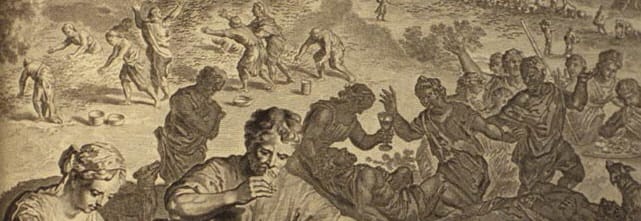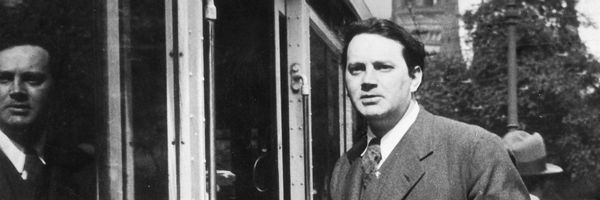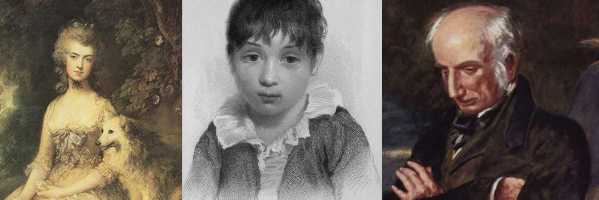Week 8: Transcending Our Impasse

This week, we are focusing on Joshua Cohen's 2015 novel Book of Numbers. If you read Week 1: Introduction, you may recall Cohen's comments from his 2013 review of Thomas Pynchon's Bleeding Edge (which follows from the dot-com burst to shortly after the September 11th terrorist attacks in New York City). In short, Cohen notes, "one of the barest necessities of fiction is keeping two characters apart for enough time for a misunderstanding to ensue," which makes cell phones "the chief antagonists of fiction." Pynchon, Cohen suggests, makes use of his 2011 setting as the final moment before this era of hyperconnectivity. After the chaos of that day, cell phone sales skyrocket, and suddenly "to lose touch is to die." Characters are always, at least potentially, in contact, which runs counter to the novel standard of chance encounters (via Victorian realism) and the steady progression of characters toward each other.
This refresher is important because Cohen would have been working on Book of Numbers at this time, and all of those ideas are repeated directly in his novel. In reviewing Bleeding Edge, Cohen is also setting the stage for his own novel. As Harold Bloom suggests in The Anxiety of Influence, "strong poets make history by misreading one another, so as to clear imaginative space for themselves." Cohen interviewed Bloom in 2018, and starts his introduction on that point:
Harold Bloom's theory of influence is, by now, infamous. It proposes a history of literature in which writers attempt to psychologically defend themselves against the masters of the past by consciously or unconsciously misinterpreting their work.
The occasion of the interview is the recent death of Philip Roth, a fellow Jewish writer who is a precursor to Cohen. Bloom, also famous for his writing on and defense of the Western canon, at one point in the interview gives special place to Cohen:
Your Moving Kings is a strong and rather hurtful book, but that helps validate it. Book of Numbers, however, is shatteringly powerful. I cannot think of anything by anyone in your generation that is so frighteningly relevant and composed with such continuous eloquence. There are moments in it that seem to transcend our impasse.
The immediate context here is Jewish writers in America – Bloom says the novel is one of the four best books in that category – but Cohen is, of course, also openly concerned about the status of the novel in the age of hyperconnectivity. In borrowing Bloom's phrase for this week, I do not intend to necessarily place Cohen's novel as the major text in this context, but I do wish to highlight an aspirational quality: making an effort to write a hyperconnected novel, and to simultaneously move past this literary problem to pursue something more.
Book of Numbers is the story of a writer named Joshua Cohen who is tasked with ghost-writing the memoir of big tech (most closely, Google) founder and CEO Joshua Cohen. The latter's prominence almost completely overwrites the former's virtual presence, but the CEO (referred to as the Principle) embraces this sense of multiplicity. Presented as part of a Hindu-inspired, tech-based spirituality, the Principle speaks of himself in plural form, though this may all be an act to evade consequence. The memoir is premised centrally on an imminent reveal of the company's complicity in previously undocumented government surveillance. The memoir tells JC-the-founder's story while he is dying or otherwise disappearing. It is a story of one person's creation, but in the end the big news story becomes the more amorphous image of the government, whose online surveillance initiatives are mostly seen as justified by the American people. We get this story framed, however, through JC-the-writer, with the central narrative presented as the transcription of the Principle's statements with cross-outs, notes, interjections, and so on.
What might have seemed weird coming from an individual (the Principle) is justified under the idea of national security. Through his writing double, however, we can see the sort of obsessive person created by this society. Through him, we can judge this technological world, but the layering allows a more complicated view. In one section, he is sent off to write the book and barred from accessing the Internet, and so we can see through contrast what he is like without the forms of online searching created by the other Joshua Cohen. He cheats in part, and reads online, but cannot respond and leave a trace. Those he knows in New York, meanwhile, are becoming increasingly frustrated and concerned by his lack of response and a questionable record of card-based purchases, through which machines communicate some part of his life across the globe. To lose touch is to die. He becomes unreachable by telephone, but in a wider context of hyperconnectivity, he retains some possible proof-of-life.
A romance, of sorts, elaborates on his relationship to searching. Joshua Cohen travels to Dubai to meet Joshua Cohen, but while there becomes obsessed with the veiled Muslim women. He identifies one in particular, having only seen her eyes, who becomes his core focus. Caught in a fantasy of saving her from her abusive husband, he secretly marks her back with a bit of chalk, which allows him to more easily stalk her through a mall. He eventually makes contact and gets her back to his hotel room, and then later helps her flee to another country. He knows very little about her, including where she is actually from, and only later realizes he is not in love with her but simply her absence from his ability to search online. Her inability to be found by him outside of the much more recognizably weird real-world tracking is distinct, however, from the wider reach of the search company Tetration or the United States government, particularly given the novel's overt setting around the ten-year anniversary of 9/11/2001. She is from precisely the same sort of background which publicly justifies the governmental surveillance.
As the story trails off back into JC-the-writer's life, he recalls writing an earlier book. He had interviewed his mother then, and wrote her story. Looking back, he regrets not capturing more of his father's life as well. His parents, of an earlier generation, had lives and struggles otherwise not recorded, a luxury or curse quickly fleeting. The surveillance is not limited to the Middle East, but pervades everywhere, and is set to only improve over time.
In the world of Tetration, it is not just that we are findable, but knowable (in a limited and limiting sense, distinct from a book) and governable. As the Principle describes, it is not just finding things online, but serving valuable ads required the creation of a predictive algorithm: "Not predicts, but determines. Destines, fates. Entraps your future in your past." Describing what is now known as surveillance capitalism, JC-the-writer interjects to clarify, "we don't even have to be surveilled, because with proper incentive we all bare ourselves voluntarily." Book of Numbers explores this impulse to bare all, and the impulse to discover all. Ultimately, per certain values, the technology falls short, though that is different from saying it is ineffective in its owners' goals.
In an interview with The New Republic, Cohen situates the novel as part of a necessary shift in the medium. Previously, the novelist was "the information bringer-and-bearer," a person with "the most claim of anyone to omniscience." The Internet gives something of that power to everyone, and so now novelists need to do something else to justify the value of the novel form. Cohen suggests,
It seems to me that if the novel has any future it’s to scrutinize how we continue to live and write in a world that so relentlessly scrutinizes us—for ways in which to turn yesterday’s suspicions into tomorrow’s news.
Before this digital omniscience the novel could ask, “Is this true?” After, the novel should ask, “How can I live with it?”
The original "Book of Numbers," as Cohen discusses with Gideon Lewis-Kraus in the interview, is the story of the Israelites lost in the wilderness of the desert for forty years, awaiting a generation worthy of the Promised Land. Joshua Cohen's Book of Numbers repurposes the story for the digital age. We are in the wilderness, and can just barely perhaps live with the world presented. The promise of the Internet is still there, and the novel-as-prophecy is pivotal in guiding us toward that goal.
Bloom suggests there are "moments" in Book of Numbers which "seem" to transcend our impasse. As is implied in this 10-week course, which is by no means comprehensive, transcending our impasse and imagining how we can live with the hyperconnected world of constant scrutiny is not the work of any one text, but rather something which might be discerned across many texts. We move next to two other novels concerned with successive digital generations: Tim Maughan's Infinite Detail and Karen An-hwei Lee's The Maze of Transparencies, both a few months apart in 2019, both imagining the collapse of the global Internet. Like Joshua Cohen (the character) left to write with no online access, Maughan and Lee find value in exploring that wilderness.
This is part of a 10-week course on Literature & Hyperconnectivity. To receive the remaining weeks in your inbox and to hear about similar projects in the future, consider signing up below.





